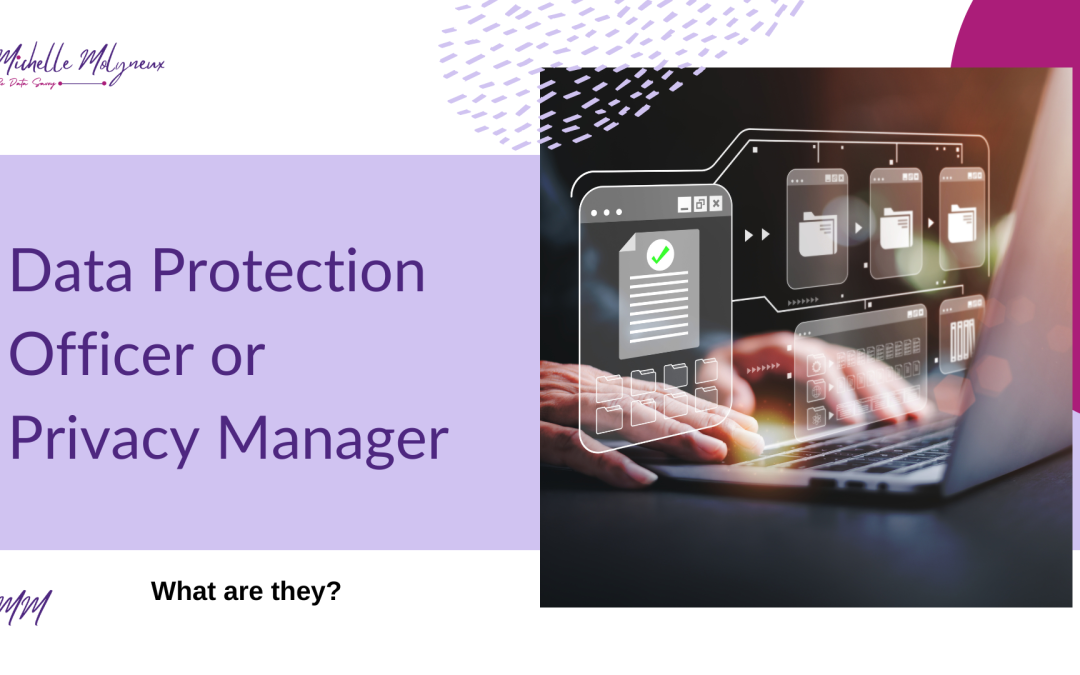Introduction
As businesses and organisations increasingly rely on technology to store, process, and share data, the need for data protection has become more apparent. In response, many organisations appoint a Data Protection Officer (DPO) or Privacy Manager to ensure compliance with data protection regulations. In this blog post, we will discuss the role of a DPO and Privacy Manager in more detail.
Read more: What are privacy managers and data protection officers?The Role of a Data Protection Officer
A Data Protection Officer is a person appointed by an organisation to ensure compliance with data protection regulations. The primary responsibility of a DPO is to ensure that the organisation processes personal data by data protection regulations. This involves monitoring the organisation’s compliance with data protection regulations, providing guidance on data protection matters, and cooperating with data protection authorities. In addition, a DPO is responsible for raising awareness of data protection issues within the organisation and training employees.
Under GDPR, you need to appoint a Data Protection Officer (DPO) if you are a public authority or body or if your core activities involve “regular and systematic monitoring of data subjects on a large scale” or “processing on a large scale of special categories of data or data relating to criminal convictions and offences”.
The regulations do not state what is classified as ‘large scale’, but the best practice is over 250 data subjects. The ICO has a self-assessment to see if you legally need to appoint a DPO, and it takes less than 5 minutes to complete.
The Role of a Privacy Manager
Many businesses don’t need a Data Protection Officer, but they still need or want someone to oversee it. That is where a Privacy Manager comes in.
A Privacy Manager is a person responsible for managing an organisation’s privacy program. The primary responsibility of a Privacy Manager is to ensure that the organisation’s privacy policies and procedures comply with data protection regulations. This involves conducting privacy assessments, developing and implementing privacy policies and procedures, and monitoring the organisation’s compliance with privacy regulations. In addition, a Privacy Manager is responsible for raising awareness of privacy issues within the organisation and training employees.
Having a Privacy Manager in a business is good practice because the primary responsibility of a Privacy Manager is to ensure that the organisation’s privacy policies and procedures comply with data protection regulations. This involves conducting privacy assessments, developing and implementing privacy policies and procedures, and monitoring the organisation’s compliance with privacy regulations. In addition, a Privacy Manager is responsible for raising awareness of privacy issues within the organisation and training employees. By having a Privacy Manager, organisations can better protect the personal data of their customers and employees.
Conclusion
Organisations need a Data Protection Officer or Privacy Manager when they process personal data, as mandated by data protection regulations. The primary responsibility of a DPO is to ensure that the organisation processes personal data by data protection regulations, while the primary responsibility of a Privacy Manager is to ensure that the organisation’s privacy policies and procedures comply with data protection regulations.
In conclusion, with the increasing importance of data protection, many organisations appoint Data Protection Officers or Privacy Managers to ensure compliance with data protection regulations. The primary responsibility of a DPO is to ensure that the organisation processes personal data by data protection regulations, while the primary responsibility of a Privacy Manager is to ensure that the organisation’s privacy policies and procedures comply with data protection regulations. By appointing these positions, organisations can better protect the personal data of their customers and employees.

